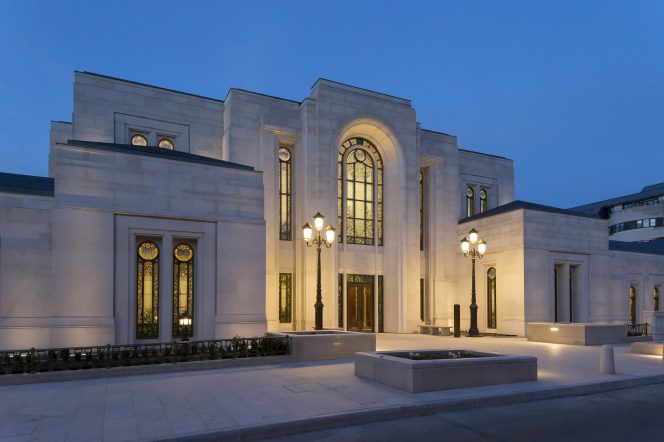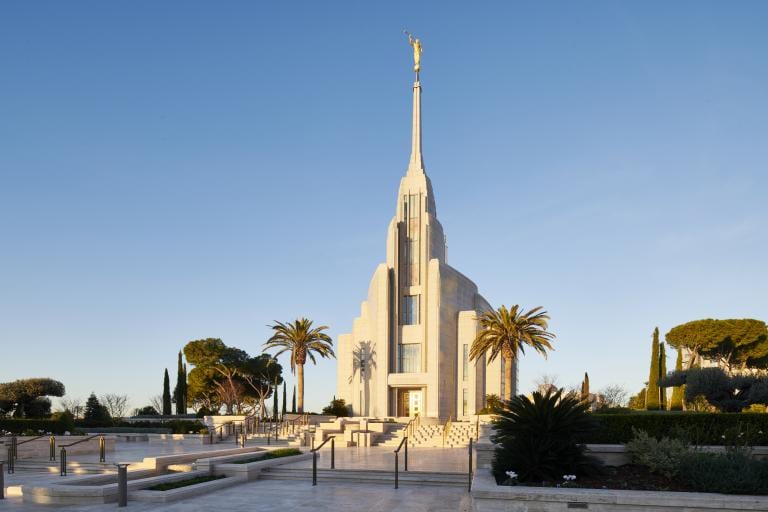
Today’s new article in Interpreter: A Journal of Latter-day Saint Faith and Scholarship reviews an essay by a friend and former student of mine (one of the brightest that I’ve ever had). It touches on a sensitive and often inflammatory subject:
““We Don’t Know, So We Might as Well”: A Flimsy Philosophy for Same-Sex Sealings,” written by Matthew Watkins
Review of Nate Oman, “A Welding Link of Some Kind,” Thoughts from a Tamed Cynic (Substack, September 27, 2022).
Abstract: Nate Oman claims to demonstrate a theological path that allows for same-sex sealings within existing Latter-day Saint doctrine. In fact, he claims that such an adjustment would be not only compatible with most Church doctrine but more scripturally sound than current teachings and policies regarding same-sex relationships. However, he falls short of his declared objective. His essay sets up an exaggerated pattern of dramatic theological overhauls in Latter-day Saint theology, downplays existing revelation on the subject of sealings and exaltation, and proposes a new theology to justify his policy conclusions. In the end, his essay completely ignores the root cause of the contention surrounding the issue: the nature of doctrine and the truth claims of the restored Church.

After three weeks of heartwarming chaos, we saw the world’s cutest three-year-old (and, oh yes, her father, our son) off at the airport today for the first leg of her return trip to Bogotá. Such partings always strike me as a little bit like death. Happily, I don’t expect this to be a final goodbye, just as I’m confident that mortality itself doesn’t end with a final farewell. But, as every parent knows who’s ever sent a child off on a mission or to the military or to a distant school or anything similar, the mere confidence that that child will probably return, perhaps even much grown and “improved,” doesn’t altogether eliminate the pain or the empty loneliness of it. Our house seems forlorn. Silent. Even desolate. We’re picking up toys that are still scattered in almost every room. Christmas is over, and our granddaughter is far away.

Continuing with my supposed denigration of the late Pope Benedict XVI, I share the following small batch of links:
“Letters from Rome: #2: On the Death of Joseph Ratzinger, Pope Emeritus Benedict XVI: The True Joseph Ratzinger ,” written by George Weigel. (Please note the use of the late pontiff’s baptismal name, which, when I used it, was said to be grossly offensive to Catholic sensibilities and intentionally insulting to the man himself.)
“Benedict’s Middle Path: A model of moderation, discernment, and erudition,” written by Daniel J. Mahoney
I quite enjoyed this last linked article, above, which comes from the National Catholic Register and which provides a good and appreciative overview of the late pope’s life. Having been falsely pronounced guilty of not one but two heinous offenses against Pope Benedict XVI and the world’s Catholics — not only using his baptismal name, Joseph Ratzinger, but having said that he has now entered into a new life, the hereafter, “after decades of attempting to serve God in the best way he could.” That was supposedly intended as an insult. But it’s actually just basic Christian doctrine, which holds that all of us, even popes and prophets and saints and apostles, fall short of the glory of God and need the merciful atonement of Jesus Christ in order to be saved. (My critics, I think, may once have been aware of that doctrine, even if they’ve since forgotten it.) It’s certainly a doctrine that Pope Benedict seems to have understood very clearly, as witnessed in the final paragraphs of the National Catholic Register article:
In a . . . letter responding to the Munich investigation that served as a profound and memorable coda for his ministry as a priest, archbishop and pontiff, the pope emeritus asked for the forgiveness of abuse survivors, noting that he had “borne great responsibility in the Catholic Church.”
Concluding his letter, Benedict looked toward his judgment before God.
“Quite soon, I shall find myself before the final judge of my life. Even though, as I look back on my long life, I can have great reason for fear and trembling, I am nonetheless of good cheer, for I trust firmly that the Lord is not only the just judge, but also the friend and brother who himself has already suffered for my shortcomings, and is thus also my advocate, my ‘Paraclete,’” he wrote.
“In light of the hour of judgment, the grace of being a Christian becomes all the more clear to me. It grants me knowledge, and indeed friendship, with the judge of my life, and thus allows me to pass confidently through the dark door of death.”
“In this regard,” he concluded, “I am constantly reminded of what John tells us at the beginning of the Apocalypse: he sees the Son of Man in all his grandeur and falls at his feet as though dead. Yet He, placing his right hand on him, says to him: ‘Do not be afraid! It is I …’”
Reportedly, Pope Benedict’s last words — spoken in German, his native language — were Jesus, ich liebe dich (“Jesus, I love you”) or, alternatively, “Lord, I love you,” spoken in Italian (the language of his adoptive home in Vatican City or Rome). Either way, they’re significant, and not a bad program for a life.
I wasn’t really intending to continue to post about the late pope emeritus. Certainly not even after his funeral. But I’m still running across worthwhile reflections on his life and ministry. So, as long I continue to do so, I’m likely to keep on posting links to them.

I liked President Nelson’s message for the New Year: “Be Patient, Be Persistent, Be Prayerful: A New Year’s Message from the Prophet.” For whatever little this may be worth, it’s somewhat parallel, thematically, to the remarks that I delivered on 17 December of last year to the U.S. Hazara Conference.











